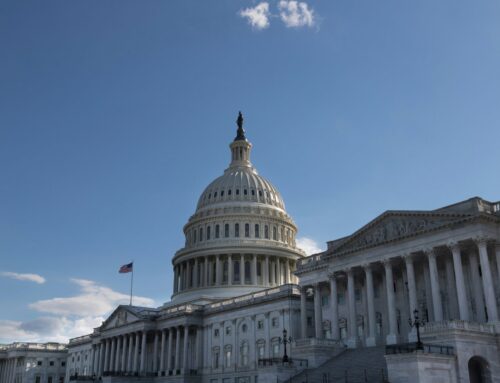Halloween is in the rearview mirror, as we round the curve toward Thanksgiving. At Taxpayers for Common Sense, we love a good holiday theme. And what’s a better theme for budget watchdogs than Day of the Dead, when we gather to remember those (programs) that have passed on? Sure, we are a couple days late, but Congress is five-plus weeks into Fiscal Year 2022 and hasn’t passed a single funding bill, so on that grading curve you could say we’re early.
First, we pay homage to the dear, (finally), departed Pentagon slush fund known as the Overseas Contingency Operations (OCO) account. Maxing out at close to $200 billion per year during the Iraq and Afghanistan wars troop surge in the Obama Administration, we’ve been pointing out the budget trickery of so-called “off budget” spending at the federal department with the largest discretionary budget. In fact, our “4.6 Recommendations for the Biden Administration” put ending OCO at the very top. We think that’s what led to the administration’s decision to request $0 in the Fiscal Year 2022 budget request (yeah, that was sarcasm). Goodbye OCO. We hope to never see you again.
Next up in national security: the Air Force’s F-22 fighter aircraft program. An oldie but a goodie. This platinum-plated fighter was finally cut short by a bipartisan amendment sponsored by Senators Levin (D-MI) and McCain (R-AZ) way back in 2009. Remember when Congressional colleagues worked across the aisle to end wasteful spending, even if it was more money for the Pentagon? We do.
Speaking of bipartisanship, in June, we celebrated the ten-year anniversary of the Senate’s 73-27 vote to end the wasteful $6 billion-per-year ethanol tax credit (known as VEETC). To date, ethanol subsidies have mostly rested in peace, as long as you ignore $200 million for ethanol blender pumps and $32 million for ethanol facilities in the Rural Energy for America Program (REAP) announced since then. Regardless, Congress should be applauded for its 2011 efforts to eliminate corn ethanol subsidies that do more harm than good for the climate. Now, fingers crossed VEETC-like subsidies don’t rise from the dead in the reconciliation package at the behest of the ethanol lobby.
Today is the time we also reflect on the days of federal oil and gas leasing with wild abandon. Not long ago, millions of acres of public land were ponied up for lease to oil and gas interests with no concern for what amount of revenue was fair for taxpayers, or how our resources could be best managed . From 2017 to 2020, the Trump Administration offered 25 million onshore acres for lease for oil and gas development. After flooding the market, lease sales in 2020 returned just one-third what the average bid had been from 2009 to 2016. In desperate need of reform, the current Administration has pressed pause so the oil and gas leasing system can get the tune up it needs before taxpayers lose out on millions more. Let’s hope reckless leasing remains in restful repose.
It is also a good time reflect on FutureGen, the billion-dollar boondoggle of a “clean-coal” power plant put to rest for a second time in 2011, before being officially canceled in 2015. Billed as the first coal-fueled, zero-emissions power plant when proposed in 2003, the spiraling costs and technical infeasibility led the Bush Administration to pull the plug in 2008. Stimulus funds brought it back to life in 2009 only for the Obama Administration to pull the plug again. Proving that bad ideas never really die, pipe dreams of capturing carbon and pumping it underground have sprouted up throughout the reconciliation bill: in the $9.7 billion “USDA Assistance for Rural Electric Cooperatives,” the $2.2 billion extension of the 45Q tax credit, the $4 billion “Advanced Industrial Facilities Deployment Program,” and elsewhere.
Despite some policy missteps, a clear death to celebrate is that of climate policy denialism. Entities ranging from agribusinesses to venture capitalists have been forced to accept the reality that climate change has real costs and challenges. Federal policy proposals have begun to incorporate climate mitigation, disaster planning, and climate resilience, but we still have a long way to go. For instance, increased spending on agricultural conservation programs within the current budget reconciliation package includes – at least in part – a focus on climate-related investments. However, if underlying incentives promoting risk taking at taxpayer expense – such as those in federal crop insurance – are not reformed, taxpayers will ultimately be left with status quo policies and false climate solutions. As we’ve said before, it’s time for common sense on climate – putting to bed the mistakes of the past and investing in real, lasting solutions.
So, there you have it. Día de los Muertos to fondly remember the policies that we’re happy have been put to rest. Stay tuned for more on the budget reconciliation package as it moves through Congress over the coming weeks – in the hope that taxpayer-friendly policies win out and the bad ones rest in peace.










